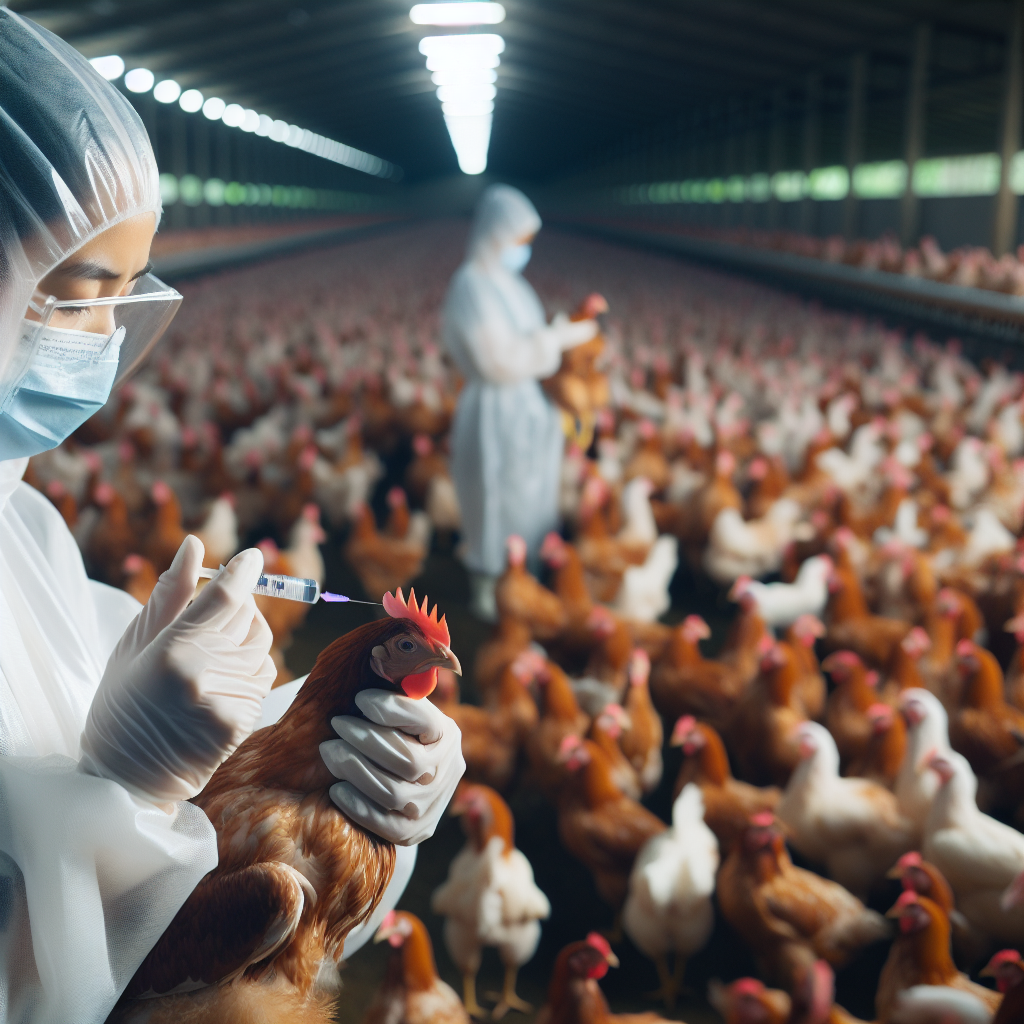Are you a farmer looking to ensure that your farm meets all the necessary regional regulations? Engaging with local authorities is key to achieving compliance and a smooth operational process. By establishing a positive relationship and actively communicating with these authorities, you can gain valuable insights, guidance, and support to ensure that your farm is up to par with all the required standards. With the right approach, you can navigate the complexities of regional regulations and create a cooperative environment that benefits both your farm and the local community.
Understanding the Regional Regulations
Researching and Familiarizing Yourself with the Regulations
Before engaging with local authorities, it is crucial to thoroughly research and familiarize yourself with the regional regulations that apply to your farm. This will provide you with a solid foundation of knowledge and help you understand the specific requirements you need to meet. Take the time to read through the regulations, paying close attention to any relevant sections that pertain to your farm’s activities, size, and location.
Identifying the Key Regulatory Bodies
Once you are familiar with the regulations, it is important to identify the key regulatory bodies responsible for enforcing and overseeing compliance. These bodies can vary depending on your location, but they commonly include agricultural departments, environmental agencies, and health and safety authorities. Researching and understanding the roles and responsibilities of these regulatory bodies will help you navigate the compliance process and establish effective communication channels.
Gaining Insight into Specific Requirements
Understanding the specific requirements outlined in the regional regulations is essential for ensuring your farm meets compliance standards. Some common areas that may have specific requirements include waste management, animal welfare, pesticide use, water conservation, and land use. Familiarize yourself with these specific requirements and seek guidance from experts or resources available to gain a comprehensive understanding. This will enable you to assess your farm’s current practices and identify any areas that may need improvement before engaging with local authorities.
Establishing Communication Channels
Finding the Relevant Contact Information
To engage effectively with local authorities, you need to find the relevant contact information for the regulatory bodies overseeing your farm’s compliance. This information can often be found on their official websites, but it is important to ensure that you have the most up-to-date and accurate contact details. Look for specific departments or individuals responsible for agriculture or environmental compliance.
Identifying the Appropriate Contact Person
When reaching out to local authorities, it is essential to identify the appropriate contact person who can provide guidance and support regarding your farm’s compliance. This may be an agricultural inspector, an environmental officer, or a representative from a specific department. Contacting the right person will help streamline the communication process and ensure your inquiries and concerns are addressed promptly and effectively.
Understanding the Preferred Communication Method
Local authorities may have a preferred method of communication, so it is important to understand and adhere to their preferences. This can vary from phone calls to emails or even in-person meetings. When initiating contact, inquire about their preferred communication method and accommodate their preferences to facilitate effective communication and establish a positive professional relationship.
Preparing for Engagement
Gathering Documentation and Records
Preparing for engagement with local authorities involves gathering the necessary documentation and records pertaining to your farm’s operations. This may include permits, licenses, certifications, environmental impact assessments, and records of compliance with previous regulations. Having these documents organized and readily accessible demonstrates your commitment to compliance and makes the engagement process smoother and more efficient.
Assessing Compliance with Current Regulations
Before contacting local authorities, it is essential to assess your farm’s compliance with the current regulations. Conduct a thorough review of your farm’s practices, infrastructure, and procedures to identify any areas that may not meet the requirements. This self-assessment will help you understand the potential areas of improvement and allow you to address them proactively during the engagement process.
Identifying Potential Areas of Improvement
During the compliance assessment, it is crucial to identify potential areas of improvement. This may involve implementing more sustainable farming practices, improving waste management systems, or adopting better animal welfare practices. By identifying these areas in advance, you can demonstrate your commitment to continuous improvement and a proactive approach to complying with regional regulations.
Initial Contact
Introducing Yourself and Your Farm
When initiating contact with local authorities, introduce yourself and provide a brief overview of your farm. Include key information such as the size, location, and type of farming activities you engage in. This introduction will provide context for the authorities and help them understand your specific situation.
Requesting a Meeting or Phone Call
After the initial introduction, it is essential to request a meeting or phone call with the appropriate contact person to discuss your farm’s compliance with the regional regulations. Clearly express your intention to address any concerns and seek guidance on how to comply with the regulations effectively. Requesting a meeting or phone call demonstrates your commitment to engaging with local authorities and ensures that you have their undivided attention to discuss your specific needs.
Highlighting Your Desire to Comply with Regulations
In your communication, emphasize your genuine desire to comply with the regional regulations and work collaboratively with local authorities. Highlight that you see compliance as an essential aspect of responsible farming and that you are committed to protecting the environment, ensuring the well-being of animals, and upholding the highest standards of safety and quality in your farm operations. By expressing this willingness, you establish a positive impression and lay the foundation for a productive relationship.
Engaging in Meetings
Preparing an Agenda
Before attending a meeting with local authorities, it is helpful to prepare an agenda outlining the key topics and questions you wish to discuss. This will ensure that the meeting stays focused and productive. It is advisable to include agenda items related to specific regulations and requirements that are applicable to your farm, as well as any areas you have identified for improvement. By preparing an agenda, you demonstrate your professionalism and commitment to using the authorities’ time efficiently.
Discussing Specific Regulations and Requirements
During the meeting, engage in a detailed discussion about the specific regulations and requirements that pertain to your farm. Seek clarification on any areas that may seem vague or unclear, and ask for guidance on how to meet these requirements effectively. Local authorities are often well-versed in the regional regulations and can provide valuable insights and interpretations. Take advantage of this opportunity to gain a comprehensive understanding of the expectations and standards set by the regulatory bodies.
Seeking Clarification and Guidance
Engaging with local authorities provides an excellent opportunity to seek clarification and guidance on any doubts, concerns, or challenges you may face in complying with the regional regulations. Don’t hesitate to ask questions, share your challenges, and seek expert advice from the authorities. Their expertise and experience can guide you in developing practical solutions, implementing best practices, and avoiding potential pitfalls.
Collaborating for Compliance
Understanding the Role of Local Authorities
Understanding the role of local authorities is crucial in establishing a collaborative approach to compliance. Recognize that local authorities are responsible for enforcing regulations, ensuring public health and safety, and maintaining environmental standards. By understanding their role, you can work in partnership with them, demonstrating your commitment to complying with regulations while also appreciating the authorities’ expertise and responsibility in ensuring a sustainable agricultural sector.
Collaborating on Solutions
Engaging with local authorities should be seen as an opportunity to collaborate on finding practical solutions to meet the regional regulations. Share your farm’s specific challenges and seek input from the authorities on feasible approaches to compliance. Actively involve them in discussions about potential strategies, alternatives, or modifications that can help your farm meet the requirements effectively. By collaborating, you create a collective responsibility for compliance and foster a positive working relationship.
Adopting Best Practices and Recommendations
During your engagement with local authorities, be open to adopting best practices and recommendations they may offer. Local authorities often have valuable insights and resources that can help you improve your farm’s compliance efforts. Implementing these best practices not only ensures compliance but may also lead to increased efficiency, cost savings, and environmental sustainability. Strive to integrate their recommendations into your farm’s operations and demonstrate your commitment to continuous improvement.
Seeking Assistance and Support
Inquiring About Available Resources and Services
Local authorities often provide a range of resources and services to support farms in meeting regional regulations. Inquire about these available resources, such as training programs, workshops, or informational materials. These resources can help you stay updated on regulatory changes, improve your understanding of compliance requirements, and access vital technical guidance.
Requesting Technical Guidance or Expertise
If you encounter specific technical challenges or require specialized expertise to address compliance issues, do not hesitate to reach out to local authorities for assistance. They may have specialists or technical teams who can provide guidance, conduct inspections, or offer solutions tailored to your farm’s unique circumstances. Requesting technical guidance demonstrates your commitment to finding practical solutions and ensures you are leveraging the available expertise effectively.
Exploring Funding Opportunities
Compliance with regional regulations often involves financial investments, especially when making infrastructure upgrades or adopting new technologies or practices. Local authorities may offer funding opportunities or grants to support farms in meeting these compliance requirements. Explore these funding opportunities and inquire about any available financial assistance programs that can help alleviate the costs associated with compliance. Taking advantage of these opportunities demonstrates your resourcefulness in implementing necessary changes while adhering to regional regulations.
Establishing Long-Term Relationships
Maintaining Open Lines of Communication
Building and maintaining open lines of communication with local authorities is essential for long-term compliance success. Regularly update them on any changes or improvements made to your farm’s practices, seek their feedback, and provide them with relevant documentation or records as needed. By keeping them informed, you demonstrate your commitment to transparency, accountability, and ongoing compliance.
Participating in Workshops and Trainings
To enhance your understanding of regional regulations and stay up-to-date on any changes, actively participate in workshops, trainings, and other educational opportunities provided by local authorities. These events offer valuable insights, networking opportunities, and access to the latest information and best practices. By participating, you demonstrate your commitment to staying informed and continuously improving your farm’s compliance efforts.
Providing Feedback and Sharing Experiences
As you engage with local authorities and collaborate on compliance, provide feedback on your experiences and offer suggestions for improvement. Your firsthand knowledge can help inform their practices, policies, and approaches to assisting farms in meeting regional regulations. Sharing your experiences also contributes to a culture of mutual learning and encourages the authorities to better support farms like yours in the future.
Staying Informed
Monitoring Regulatory Updates
Regulatory requirements and guidelines may undergo revisions and updates periodically. Stay informed about these changes by monitoring regulatory updates through official channels such as government websites, industry publications, or local agricultural associations. By staying up-to-date, you can ensure your farm’s compliance practices align with the most current regulations and avoid any potential penalties or non-compliance issues.
Subscribing to Newsletters or Mailing Lists
Subscribing to newsletters or mailing lists provided by local authorities, industry organizations, or relevant agricultural associations can be an effective way to receive timely information on regulatory updates, training opportunities, funding programs, and other relevant news. By staying subscribed, you gain access to valuable resources and ensure you receive important updates directly to your inbox.
Joining Local Agricultural Associations
Joining local agricultural associations can provide you with valuable networking opportunities and access to a supportive community of fellow farmers. These associations often provide educational resources, advocacy support, and a platform to engage with local authorities collectively. By joining these associations, you can stay informed, learn from peers, and have a collective voice in regional agricultural matters.
Evaluating and Adjusting Compliance Strategies
Periodically Assessing Farm Practices
Compliance with regional regulations is an ongoing process that requires periodic assessment of your farm practices. Regularly review your operations, procedures, and compliance efforts to assess their effectiveness and identify areas that may need improvement. This proactive approach ensures that your farm maintains compliance and continuously improves its environmental, safety, and quality standards.
Updating Operational Procedures as Needed
Based on the outcomes of the periodic assessments, update your farm’s operational procedures as needed to align with the regional regulations. This may involve implementing new technologies, modifying processes, or adopting alternative practices that promote compliance. Regularly reviewing and updating your operational procedures demonstrates a commitment to evolving and adapting to meet the changing regulatory landscape.
Continuously Improving Compliance Efforts
Compliance is not a one-time achievement but an ongoing commitment. Continuously seek ways to improve your farm’s compliance efforts by integrating lessons learned, adopting industry best practices, and leveraging available resources and expertise. By continuously improving your compliance efforts, you ensure that your farm remains at the forefront of regulatory requirements and contributes to a sustainable and responsible agricultural sector.
Engaging with local authorities to ensure your farm meets regional regulations is a proactive and responsible approach to maintaining compliance and sustaining a successful agricultural operation. By following these steps and maintaining open lines of communication, you can establish a positive and collaborative relationship with local authorities. Together, you will work towards meeting and exceeding the regional regulations, while also contributing to the overall growth and sustainability of the agricultural industry in your region.




